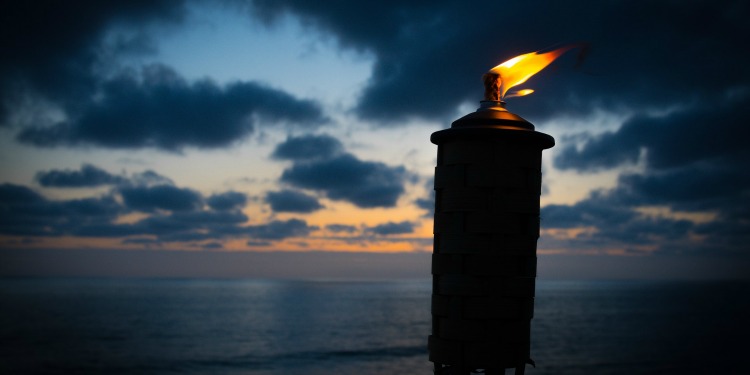Passing the Torch
The Fellowship | February 9, 2020

Aaron did so; he set up the lamps so that they faced forward on the lampstand, just as the LORD commanded Moses. — Numbers 8:3
As we remember the anniversary of Fellowship Founder Rabbi Yechiel Eckstein’s passing this month, we offer you a selection of his devotional thoughts on leaving a legacy of faith. Learn how you can honor Rabbi Eckstein’s lifework and legacy through our Wings of Eagles ministry.
Recently, a funeral was held on the Mount of Olives in Jerusalem for a Jewish man from New York. He had lived a long life and died peacefully. Yet when his son read his eulogy, everyone had tears in their eyes. He spoke about a man who was simple and poor. He spoke about how when he was younger, he was embarrassed by his father, but as he grew older, his respect for his father grew.
The son was sorry that he only came to appreciate his father when it was “too late,” but was proud that he was continuing his father’s legacy by raising his children in Jerusalem where they wouldn’t have a luxurious life, but a meaningful one. The son concluded his eulogy: “Dad, you didn’t have much to leave behind, but you left behind EVERYTHING that matters.”
Our verse today comes from the Torah readings about the commandments given to Aaron and his sons to light the menorah, the seven-branched lamp in the Temple. The preceding Torah portion is about the gifts that the princes from each of the twelve tribes brought to God. According to Jewish tradition, the two passages are connected. After watching the princes offer gifts, Aaron felt bad that he hadn’t contributed anything. So God comforted him by pointing out that his descendants would light the menorah forever.
Question: Why does God highlight the menorah when there were many other duties that Aaron and his descendants would perform in the Temple. Another question: How was this “forever”? Didn’t the lighting of the menorah cease after the Temples were destroyed?
The Jewish teachers offer the following explanation. Centuries later after this commandment was given, the Jews lived under Greek oppression and were forbidden to practice their faith and any of its traditions. It was Aaron’s descendants who would be the ones to defeat them. You see, his descendants were the Maccabees, and their victory is remembered every year on the holiday of Hanukkah. On that holiday, we light our own menorahs, and that is how Aaron’s descendants light the menorah forever!
The menorah and its lights represent spirituality, and lighting the menorah symbolizes spreading spirituality and the light of God in the darkness of this world. When God gave Aaron the job of lighting the menorah for eternity, He was telling him that through his family, God’s light would be spread throughout the world and His legacy would be continued.
Sharing God’s light and passing it on to the next generation is the kind of contribution that lasts forever. It’s not about how much we leave behind in this world; it’s about leaving behind what matters the most.
